…. “no one ever found the Lord while living, O Bahu, except those who found him by dying while living”
Sultan Bahu, 17th Century Sufi saint, Punjab, India
What is this death in life that is taught in the mystery schools and handed down through the brotherhoods and secret societies? Are all the gods we worship nothing more than reflections. Mirror images, or the mirror itself?
Farid dun Attar was a 12th century Persian poet. He wrote an allegory, a great work of sufi literature, The Conference of the Birds (Mantiq at-Tayr) based on a passage in the Quran where Soloman and David learn the language of the birds. ¹ A beautifully illustrated and narrated video rendition of this wonderful story can be found here Conference of the Birds
and here
Conference of birds - animation
Thousands of birds from around the world are gathered for a conference. The wisest bird, the hoopoe, takes it upon herself to persuade them to set out to look for their sovereign, the great Simorgh who dwells on the legendary Mount Qaf. Hoopoe makes it clear that they must let go of everything they have in order to begin this journey. Although initially enthusiastic, one by one, they start to find excuses.
Nightingale lamented that he could not be parted for a single moment from his true love the beautiful rose:
“… it’s for me that she flowers with her hundred petals, how can I wish for more?”
Duck cries out:
“…I cannot live without water … I find my food in the water …. if I have any troubles, I simply wash them away”
Patridge wanted to stay and dig for bright and shiny precious stones:
“… they are the most valuable things you can have” she pleaded.
But Hoopoe points out the illusory nature of such earthly seductions.
Eventually the birds give in and set out on their long and dangerous journey in which they must pass through seven valleys and face many trials.
What they eventually find is not at all what they expected.
One of the main teachings of sufism (tasawwuf) is the concept that:
whoever knows himself, knows his lord (man ‘arafa nafsahu faqad’arafa Rabbahu)
This is not dissimilar to the saying ‘as above, so below’ which apparently originates from the mythical Emerald Tablet of Hermes Trismegistus. Hermeticism, as well as the mystical schools of the Abrahamic faiths and prior to that zoroastrianism and the babylonian and egyptian mystery cults, all lead ultimately to this idea that what is ‘out there’ is actually ‘in here’ and vice versa. It follows that knowing thyself should lead to knowledge of the divine. Throughout the texts of these faiths, whether canonical, apocrypha or pseudepigrapha, this ancient message has survived. It seems to have been handed down via shamanism many thousands of years before the earliest civilizations we know and is very likely anti-deluvian. The wisdom that sufis possess which includes this concept, has been passed down from this shamanic tradition and the message was alive and well in the Indus valley around 2000 B.C. It is understood in buddhism, hinduism and jainism and it formed the roots of the Hindu and Tibetan strands of tantra.
After passing through the initial Valley of the Quest, where the birds find a desert where they must give up their normal, the birds have to negotiate The Valley of Love. This is a hot place close to the sun full of fires and it requires abandoning the intellect to learn the way of the heart . Swan and parrot witness partridge getting burned as he has a close brush with death and they sadly turn back.
The remaining birds pass next through the valley of Understanding, where it is dark, day and night, and where any prior earthly knowledge makes no sense. They are shown a soldier who never sleeps. Some birds are tired and drift off, but others see that they are meant to stay awake and they witness the dark turn into a beautiful dawn. Dove, on finding an almond shell, gasps:
‘Look I can see right through the almond shell to the almond inside!’
Many secrets are revealed to the birds. But they still have a long way to go. They enter the valley of Detachment. An icy wind blows and the birds are separated from one another. The survivors become lonely and frightened and at times get lost. In this valley, all desires have to be surrendered permanently. Later they reach the Valley of Unity and to their relief, find each other again.
By the time they reach the Valley of Wonderment, many of their friends have not made it through. Now they find a strange, dream-like place where it sinks in that they have never really understood anything. Nothing and everything appear to be the same thing. And everything that they thought they knew has to be discarded. In a sense, they are wiped clean. Finally they arrive in the Valley of Poverty and Annihilation. Here they see three moths around a candle and they learn that only the moth that actually enters the flame can have an understanding of the flame.
By this time only thirty birds remain. Eventually they arrive at the palace of the great Simorgh. The keeper tells them the Simorgh refuses to see them. But when they protest he draws back a thousand veils one by one. As they pass through the veils all they had been before is washed away.
Finally they find themselves facing themselves. As if a mirror.
It turns out that the descriptor ‘Simorgh’, is actually Si - morgh which means 30 birds in persian.
What are they to make of this revelation? That their Great Simorgh, the magnificent phoenix like bird described in Ferdowski’s epic ‘Shahmaneh’ , is simply they themselves?
It is possible to wonder whether this might be a little vain. After all, wasn’t finding your own reflection what Narcissus was up to when he stared into the lake? Should we all be narcissists? Not at all. Narcissus was looking at his outer image, worshipping his own visible projection into the world. But sufism is not vanity. Looking in the mirror of self doesn’t mean getting stuck there on superficial appearances. Pride is nothing but a blindfold.
This reflective nature of sufism is possibly seen in the roots of its name. Although the etymology of the word ‘sufi’ is not clear, it is thought to be derived from wool (suf) and wool is usually white – therefore considered pure. Assaffa/Safa/yasfu and other possible roots also mean purity. White light is the color of light before it splits into the spectrum and it reflects all the other wavelengths. It would make sense then for sufi to be associated with this whole aspect of whiteness. The purpose being to unite the spectrum as such, become one with ‘god’. and cease separation. Also there may be an association with sapphire. White sapphires are believed to open the crown chakra and generally sapphires symbolize wisdom and serenity. The Egyptians used ground sapphires to treat eye ailments and the Persians believed that the earth was balanced on a giant sapphire reflected by the colour of the heavens. This reflective nature is central to sufism. The mirror that sufi sheikhs often speak of.
The seal of Soloman was an inscribed sapphire and has six fold symmetry, like the sapphire. The sefiroth of the Qabala derive their name from sapphire so it’s possible that sufi may have the same roots. The mystical language of the Qabala holds much in common with sufism.
Ikhwan al Safa ‘ Brothers of Purity’ were a very learned medieval secret brotherhood from Basra. Iraq, with pythagorean influences, who wrote a comprehensive medieval encyclopedia of sciences. Within their ‘Rasa’il Ikhwanus Safa’ there is a section about ‘Wajd’, inner spiritual sufi experience. Another section devoted to love contains much sufi terminology, though the brothers have variously been claimed to be shia/ismaili or sunni . Either way, they do cite sufi al sira (having sufi character) as being an ideal person.
Sufi sheikhs refer consistently to the mirror of the self. The world is you. Separation is an illusion. This higher/internal knowledge (ma’rifah) requires pure intuition. If you look for the light, when you find the source of the light, what do you see? You can’t stare at the sun because it will blind you. Maybe it’s too close to home. As Joni Mitchell sang
We are stardust, we are golden and we’ve got to get ourselves, back to the garden ….
Attar’s birds were not knowingly seeking source, they merely sought what they thought was a greater power, only to find there was not one. It was in each other. Like some kind of hologram.
As I see it
Be you, because you seek yourself
If you try asking somebody you know who they actually are, they most likely will not be able to tell you. They will give you instead soundbites ripped from the cover of their book. Most likely they will tell you their role, occupation or some belief system, or quality they think they have. There is not much they can tell you really, as just like you, they are in the dark.
Even if they claim they are ‘god’ That doesn’t tell you much. If you then ask ‘who or what is God’ and they then say ‘God is me’ they have come full circular reasoning . You are both still in the dark. If a totally blind from birth person asks you what a star is and you tell them it’s a light in the sky what does that mean to them if they know only darkness? God is elusive. To find God is like the blind person looking for the light. How will he know when he’s found it if he has no way of knowing what he is looking for?
Imagine trying to locate god down the side of the sofa. You may feel something while routing around trying to grasp god, but you can’t quite get your fingers around the thing. You try to assess if it is God or maybe something else that you dropped down the sofa at some unknown point in the past.
It’s all too confusing so you go back to watching that guru on you tube. He’s bound to know. And there are plenty more where he came from. Floating about on their fluffy spaces in the cloud talking about ‘finding yourself’ as if that is the only thing that matters. They flash up with their golden wonka tickets promising lakes of creamy chocolate, oompah loompahs and more. But they never give you the actual swipe key, you don’t even get a postcode, not even a county reference. Are you even sure which planet you are supposed to be on? It may be behind that next paywall, but then again ….
The problem is the deeper you go the more it disintegrates. The scientific establishment waste their energies building ever bigger particle accelerators in the quest to smash atoms down to their smallest constituent parts, in the misguided hope to find the very tiniest last indivisible one in existence.
But ye old chinese wisdom say …
If you are looking for black holes look no further than you’re own backside.
Is that God?
Should the birds have stayed at home? Why was the wise hoopoe herding everyone on a quest to find what was really right in front of them?
Most birds don’t have mirrors in their nests though. To be fair they needed to a bit of shopping one. Then again, I have been with myself since birth, but I have no idea what me is, despite the mirror in the hall. There are too many of those claiming to be me about. Way too many of them.
Do me a favour. Consider this for just a moment. If you really let down your guard, are you sure there are not a few more yous than you like to admit? Billions even if you’re gonna get really exact about it. Can you even remember? If you can its best not to shout too loudly about it. Polite society will baulk at that. And for gods sake don’t let them out. Escapees ruin the show and they might go attract some official looking dude with a great big stamp of Authority on his forehead and an over-sized god delusion, so that he comes running out with his sticky nonsense labels and bottles of coloured sweeties with pretty names like Pfizer or Astra zeneca, demanding you do as he commands.
Only too late you know you’ve seen him somewhere. Wasn’t he revealed? Hanging about the end of the New testament?
Society will worship the beast because society knows one thing:
The show must go on.
Anything else would be chaos. The film comedy ‘The Invention of Lying’ starring Ricky Gervais, illustrates this paradox very well. The absurdity of how our world can only exist through dishonesty.
Perhaps if society could allow inconsistency, parallel worlds, then fragmentation might be less frowned upon and the nightmares of breakdown might be eased by a little morning dew. As Rumi declared in one poem:
I wonder
from these thousand of me's,
which one am I?
The birds got it eventually. It sank in. Who they really were. Only though, after a timeless glorious and hellish journey.
We are many. We are each one of us who chooses to go with all of us
How do you hang on to it? This fleeting self/selves. You might see signs of the magic of god, or the gods/goddesses manifesting in the world. I certainly believe these when I listen. But I have spent more time than I care to admit screaming and cursing at God in desperation. Hating god for what it represents. Thinking the devil seems positively cute compared to that bastard god. And all the times I have cursed god I have been well aware that somehow I am supposed to thank the bastard for the latest pile of crap he has handed me.
I remember finding the answer on an LSD trip once. I had gone to use the toilet and a black hole had formed outside the toilet door. I had to carefully step over it to reach the toilet. And then I dropped the toilet paper on the floor and as it unravelled I knew the whole answer to the universe. Everything. But hard as I tried to recall it, I could not remember it the next day.
But what I did not consider back then, is that the toilet paper never gave me the question and knowing the question is always more revealing than any answers.
Who am I? What is this? What is God? What do you want from me? What the bloody hell is going on?
What is 6 x 7?
Who knows?
So what is a help or a hindrance on this way to losing self? It can be more than confusing. Sufism is the way of the heart (qalb) meaning spiritual centre or core (qalb). Divine love is central to its teachings. But does this mean sensitivity? I have a constant battle with my tendency to extreme sensitivity to the point where I feel cruel cooking a carrot, or throwing yet another spider (plant) baby on the compost. I feel the pain if I tread on an empty shell, let alone a snail or slug, and I listen to the conversation of stones and weeds and struggle with pulling up a blade of grass in case I hurt it. If I rip up an old shirt to make cloths, I feel the pain I am causing the material. I am way too sensitive. Yet as Iqbal said in his poem ‘Story of the Bird That was Faint With Thirst’ ²
Be a diamond, not a dewdrop!
be massive in nature like mountains,
and bear on thy crest a hundred clouds laden with floods of rain …
If I was truly a diamond, I would not even need to eat a carrot and I would not have feet to tread. I would have moved beyond that. But I have to accept where I am.
And sufism teaches that you root yourself to the spot like a tree and totally submit to the will of Allah. Islam itself means submission. Trees are experts at acceptance.
Just submitting has similarities to the the way of the Tao. Taoism very simply suggests that you breathe. Feel the breeze. Let be. Accept yourself and others. As the tree accepts the wind.
By going on their journey the thirty birds routed themselves to that spot like the tree and trusted despite initial misgivings. They didn’t perch about contemplating their wings. They flew off. Became magnificent. Went with it. That’s it. If they’d tried to hang on to that fatball or worm, the feast would not have lasted and they would never have found The Simorgh.. By risking it all, they gained experiences which would shape them, become part of them. Those that died were ready to move on. Those that got lost or stuck , they were not yet ready for such a powerful flight. What they found was what they always really knew deep inside anyway but had forgotten since birth. They had come full circle. And more importantly they had to lose a lot. As aspects of the self many of them simply fell away. They had to lose themselves to find themselves.
Ali al Hujwiri, commonly known as Data Sahab, the 11th century islamic scholar and mystic from Afghanistan. who wrote Kashf al Mahjub ,the earliest treatise on Sufism in the Persian language, emphasised that sufism is about self negation and presence with god. Is that also what Attar is really trying to illustrate in the Conference of the Birds? What is this language of the birds that Solomon and David learned? What is sufism really saying?
Thinking of what birds symbolized in ancient Egypt gives a clue here. Different birds had different meanings , the ibis for example was wisdom or pure thought. Generally though birds can be seen as soul messengers. The ba and the ka were aspects of the soul in the afterlife. The ba was depicted as a bird with human head. It is likely that the reference in the Quran to the language of the birds, is the language of the soul.
There is little in life more soulful than music and dancing and central to the lives of sufis is the dhikr (remembrance) This involves swaying or dancing/whirling to the music and chanting. I spent time back in the 1980s dhikering all night when I was living amongst the sufis in Egypt and working as an assistant on a documentary about the mullids (sufi saint birthdays celebrations). Normally women don’t join in, but they treated me differently being western and being a film maker. There was an american woman who was fully immersed in the whole sufi culture and could join in to, in ceremonies which egyptian women, at least back then, were not included. Clips from the film I helped film and produce The Fairgrounds of the Faithful can be seen here Fairgrounds of the Faithful
Dervish dancing does not necessarily involve full whirling around as you see in the whirling dervishes of the Turkish Mevlevi Order Istanbul -dervish dancing. What we did was just swaying from side to side for hours. It was hypnotic. It felt powerful. Music is powerful .There was always at least one who would wind up in the early hours, frothing at the mouth and having spasms and collapsing. Spiritual ecstasy can become ‘shath’ (that which overflows its normal banks) ‘shataha l’ma fi I’nahr’. More examples of eygptian sufi music/dancing can be found here dhickr . When looking at the experienced doing dervish dancing, with right palm facing upwards and left facing down, the body resembles a kind of lopsided figure eight shape like the analemma the sun makes over one year seen below
There may be something very fundamental about this movement. When spinning fast for long periods, because of the way they arrange their arms, and the tilt of their bodies, dervishes don’t get dizzy.
It is only too easy in life, to get caught up with slavery, drudgery and despair, but sufis don’t dwell there. They dance. Yes in order to practice sufism, ascetism (zuhd) is very important. Decadence is out. But life is a dance. Some of the time you may be dancing with the ‘devil’, but that is just part of the journey.
I dug out some random photos which is all I have left now from the 1980s, having managed to lose all my personal video footage somewhere along the route of my chaos.
Sufi friends Cairo
poorer suburb possibly al Zawya
Sufis distinguish between two types of mystical states, sukr (drunkenness) and sahw (sober).
When the morning star of wine arises the drunken and the sober are as one one
Wine is coded metaphor for spiritual ecstasy/mystical awakening/ rapture in sufi poetry. Code words such as this were taken into the European tradition, handed down originally from the Persian magi. These metaphors are endowed with particular meanings known only to the sufis. Some of this symbolism made its way into Dante’s Divine Comedy. It is no accident that the new testament talks of Jesus blood being wine and drinking the blood, eating the body /bread . It is symbolic of dropping the self. In the 70s people ‘dropped acid’ , me included. We lost ourselves. Drinking the wine or eating the bread (mushroom or other psychedelic) is metaphorical language for dropping the ego to attain this mystical experience of union with god.
Hafiz ³described it grandly :
Come,
let's scatter roses and pour wine in the glass;
we'll shatter heaven's roof and lay a new foundation.
If sorrow raises armies to shed the blood of lovers,
I'll join with the wine bearer so we can overthrow them.
With a sweet string at hand, play a sweet song, my friend,
so we can clap and sing a song and lose our heads in dancing
The final stage of self annilhation in sufism is called ‘baqaa’. Nature is in constant flux which is why clinging to what you have, as the birds tried to do , is ultimately a waste of time. The old proverb A bird in the hand is worth two in the bush may make common sense in the material world but in the spiritual realm that bird in the hand is not gonna stick around for long. You will lose it anyway. Opening the cage to free the bird and watch it fly away is the best way to keep that bird in your heart.
The main thing is to stay in the heart centre of being something which I forget all too often. Because I’m fighting it instead of listening. The music is again all too fast -it makes me dizzy - then too slow and I am impatient. The background starts grating, teeth are clenched or grinding, everything is way too dissonant or somehow disturbing. Or it can just be droning, repetitive, tedious, yet more washing up. Not that tune again major chords, lack of melody, dull beat, tiring and pointless.
That’s where it tricks you. Sound is clever. It can arrange itself into the most soulful or stirring of melodies or into the unbearable noise of a drill screwing its way through your head. I try to remember this when a certain bloke in my vicinity does his yearly spring ritual of spending all day banging, drilling and building over every corner of green space he can find the minute the sun comes out. I’d love to fetch my drill, switch it on high speed hammer and stick it in one of his orifices and it may be that I could find god too that way, very quickly. But I’d probably be missing the point.
I doubt if I will be dancing to the sound of a drill any time soon. But the tale goes that Rumi founded the whirling of the dervishes by dancing to the hammer of a goldsmith he was approaching. He got in its rhythm. He must have been employing ‘sama’ which is the the practice of really listening to music with your heart or soul. Deaf people can do this as well and a lot better than hearing people. Our ears can get distracted, but the soul is never distracted. When sufis are in sama they are fully immersed in the music. There is nothing like the power of music to transform.
What really is this sufi dance though? This remembrance or dzikr. This way of the heart (qalb)? This purification of the soul (tazkiyah)? What are Sufis saying when they speak of ‘divine love?’ There are many subtleties involved here. These subtleties are known as The Latifas and they are subconscious faculties. They are the knowings (or knowing) and the dhikr helps to locate and energize these latifas. They cannot just be pinned down.
The concept of Latifa reminds me of the what I believe Robert Pirsig meant by Quality’ in his masterpiece ‘Zen and the Art of Motorcycle Maintenance’. He himself struggled to truly describe its essence. That meeting between subject and object. That moment , that recognition of self in other. It’s at the edge of experience. It’s the moment before judgement or the intellect. Pirsig used the analogy of the motorbike and the bikers care in working on his bike to illustrate this phenomenon and I think its a great analogy. Bikers truly love their bikes. I was a biker myself, and I know the pleasure that I gained from tweaking those points, having a go at tuning the carburettor, or merely adjusting and oiling the chain, or greasing the forks. It’s the horse and rider thing, The symbiosis.. I remember hearing Alan Watts , the guy who brought zen to the west, describe this brilliantly , when speaking of the symbiosis of horse and rider as one being. A True bike lover really merges his being with his bike. It’s the crossing point. In carnal terms its the orgasm. The point in which all muscular control releases into freefall. Its the cessation of separation. The prison gates are open. As Pirsig states
‘Its the side of the mountain that sustain life, not the top. The only zen you find on the top of the mountains is the zen you bring up there …’
So see what he is saying. It’s like the birds. They are looking for ‘god’ as such at the top of the mountain. You could equally swap the word ‘sun’ or ‘zen’ for god. But the point is , the journey is where it’s at.
Zen and sufism have much in common. Really all the mystical and metaphysical paths seem to point the same way and the differences are mainly cosmetic. I used to go to the local pentecostal church in Brixton in south London sometimes and their way of worship, leaping around, singing, dancing, praising the lord felt more akin to the sufi approach. Many years later in Plymouth I attended the local Buddhist centre. They advised me that to follow this buddhist path, I would have to let go of attachments .They included my love of music in those attachments and my swimming in the sea. Those two things I was not about to give up . Sufism did not seem to require me to do that. But these are cosmetic differences. Ultimately the birds did have to let go of attachments. The nightingale had to leave the rose, the duck had to leave his water, the partridge his shiny jewels ..
One of the symbolic references the sufi poets use to describe the point of the journey of the soul when on the verge of unification with with Allah, just before metaphorical dawn’ is The Dark Night Of The Soul. This dark night seems to refer to a blinding light, so blinding that you cannot see with your eyes, and can only do so with your heart. This is a paradox in a way, and it would be because death is life and life is death at that point. Dark is light and light is dark. It takes cognitive dissonance to be okay with this concept. That black is white and white is black. But we live in a world of illusions on earth. Stand in a dark room and there is no such thing as black and white. Stare into the light and again you cannot differentiate. Is light deceiving us by allowing us to see it split into the spectrum? No . Light is not separating itself. Our eyes divide it. Which is why to drop ourselves we have to give up our sight. Close our eyes and say goodbye world.
Psychedelics certainly have the power to hasten the dropping of self. I have gone through this dying thing that happens. When I ended up with psychosis from taking too much LSD , I found myself in a tent with a samaritan who turned out to be a green- tentacled alien. A doctor came in at some point and told me he was going to give me a lethal injection. I was terrified and screaming and could hear my soulmate laughing cynically outside the tent before the doctor got the needle out of his case , stuck it in my arm and killed me. After death I just cried for days, or weeks or months, it is unclear how long.
…. “no one ever found the Lord while living, O Bahu, except those who found him by dying while living”
I didn’t find the lord, whatever that is. I wasn’t ready. But salvation in sufism is about death in life. Dying to live. This is also the real message of christ on the cross at Calvery. The Knights Templars have a habit of treading on the cross Dervishes throw away crosses saying ‘you may have the cross, but we have the meaning of the cross’
We gain then, insight.
As Pink Floyd put it in The Wall:
Goodbye cruel world, I’m leaving you today …. goodbye… goodbye … goodbye..
References:
1. “And Solomon was heir to David. And he said, ‘O ye people, we have been taught the language of the birds; and we have had everything bestowed upon. This indeed is [God’s] manifest grace.’” (Surah an-Naml, Ch. 27: V.17)
وَوَرِثَ سُلَيۡمٰنُ دَاوٗدَ وَقَالَ يٰۤاَيُّہَا النَّاسُ عُلِّمۡنَا مَنۡطِقَ الطَّيۡرِ وَاُوۡتِيۡنَا مِنۡ کُلِّ شَيۡءٍؕ)اِنَّ ہٰذَا لَہُوَ الۡفَضۡلُ الۡمُبِيۡنُ
2. Story of the bird that was faint with thirst. (Secrets of the Self ‘Asrar i Khudi’ )
O bird of the morning, learn love from the moth
Because it burnt, lost its life, and found no voice.
These pretenders are ignorantly in search of Him,
Because he who obtained knowledge has not returned.
Sheikh Muslih-uddin Sa'di Shirazi - The Gulistan of Sadi
‘I wonder’ Rumi - "Hidden Music" - Maryam Mafi & Azima Melita Kolin
‘Come, let's scatter roses’ Hafiz (Ghani-Qazvini, no 374) ' the Shambhala Guide to Sufism' Carl.W Ernst,

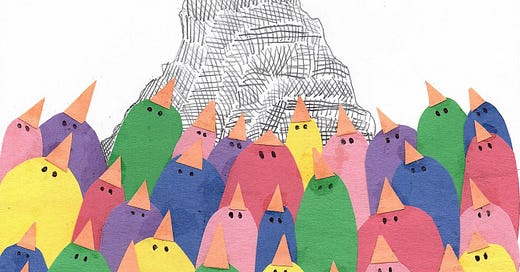


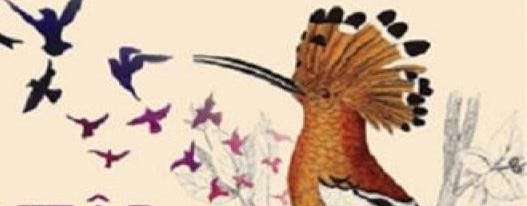


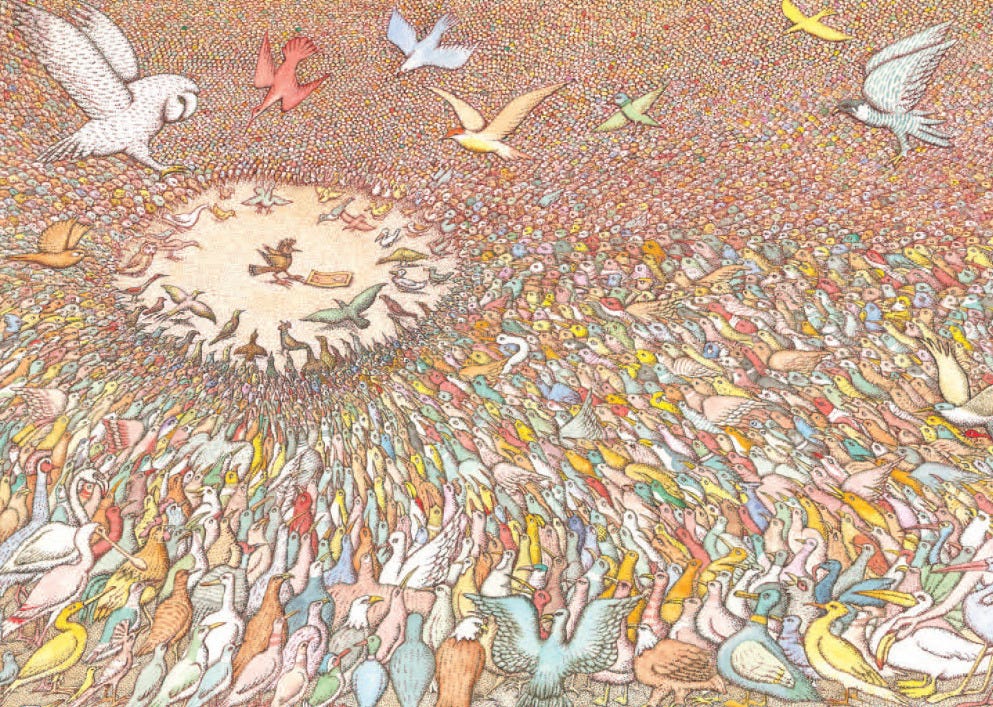
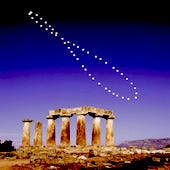
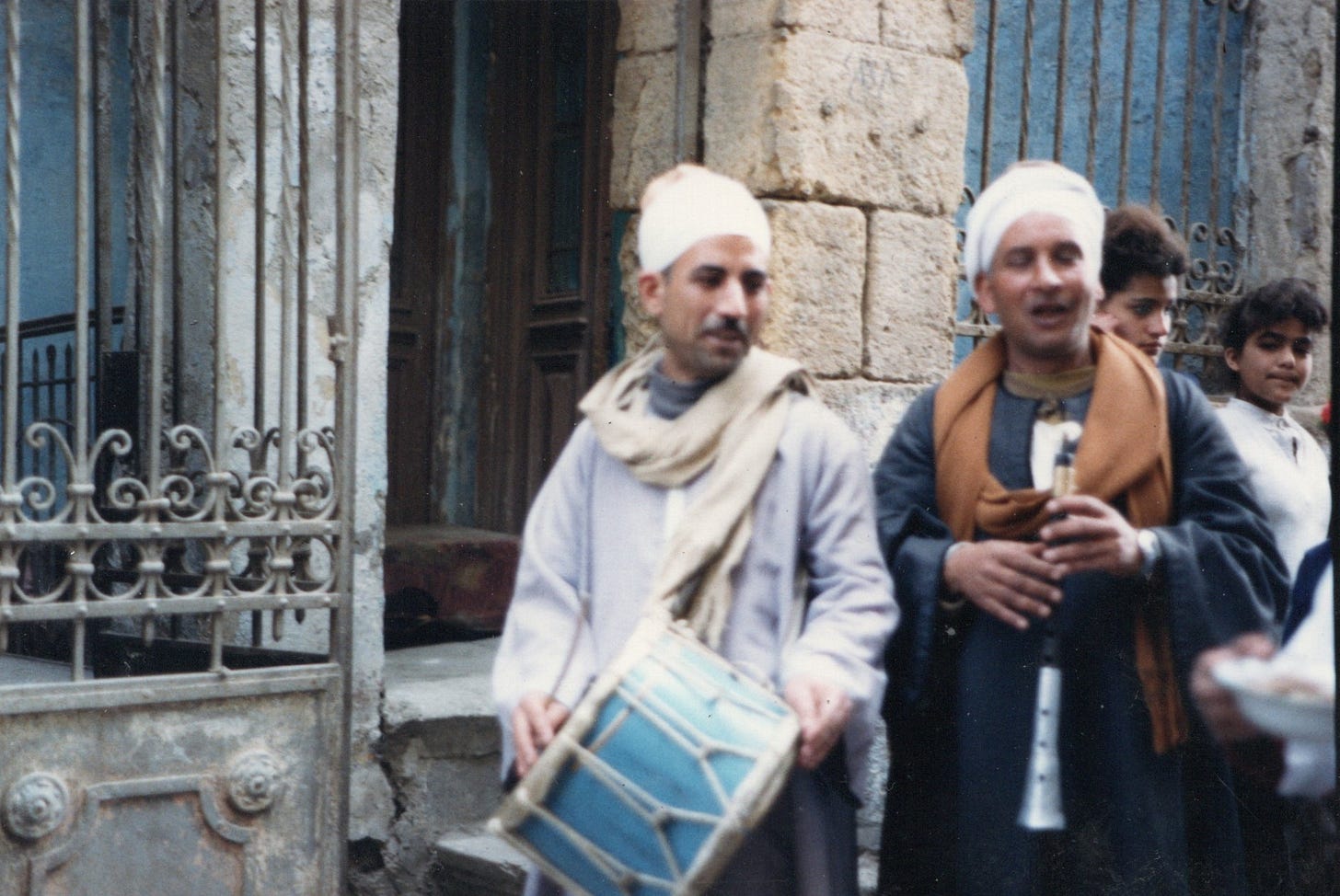
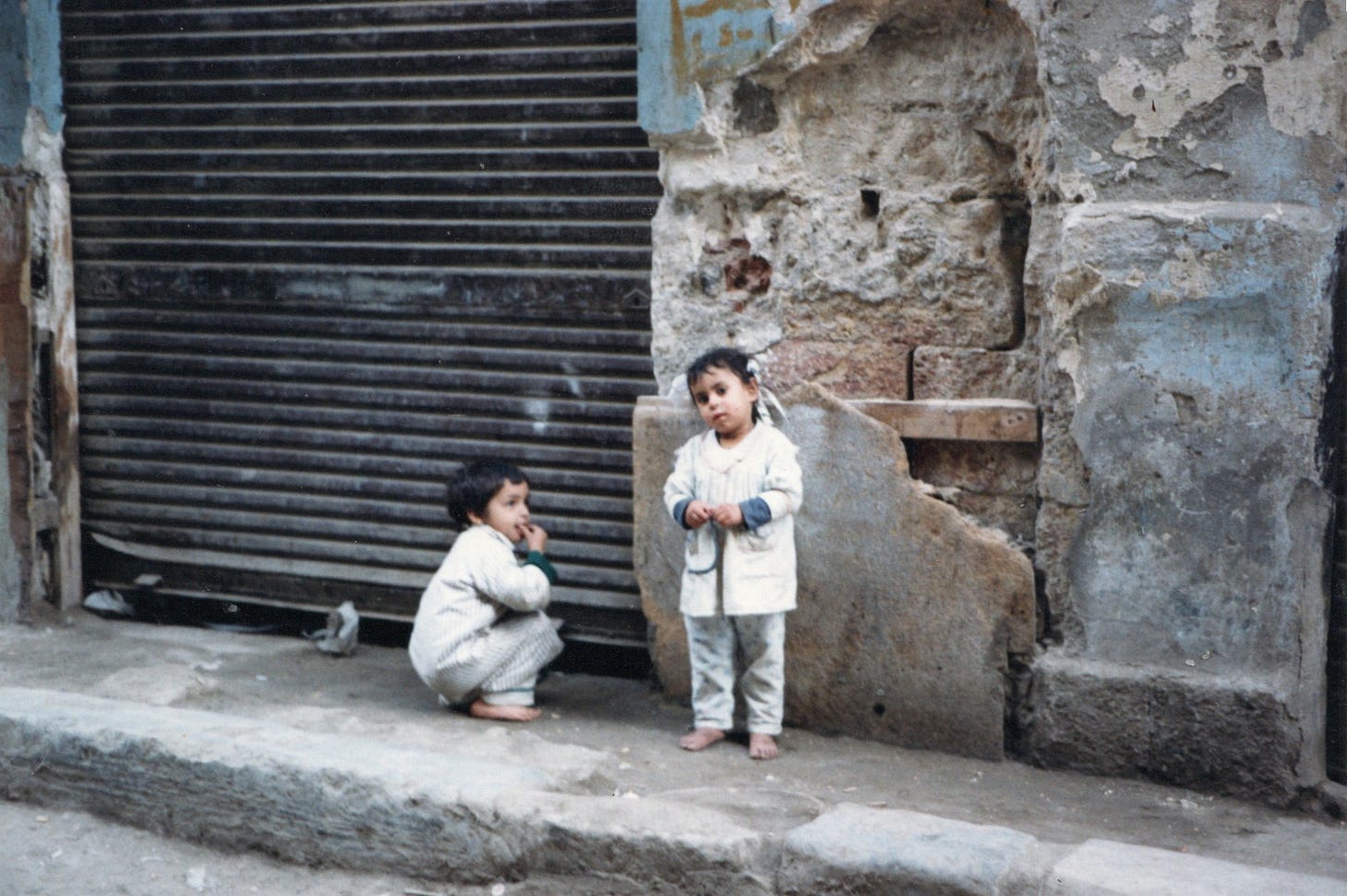


Although it's quite long, I have to say — it’s absolutely fabulous! The search was never for God “out there,” but to find ourselves. To look into that mirror which reflects our true reality — one that can’t be seen with mere eyes, but only with baseerah.
Funny thing is, I’ve also written something along similar lines — about the eye and the light. If you're into this kind of exploration, you might enjoy reading it too. Would love to hear what you think! https://laibahkhan39.substack.com/p/decoding-the-eye-02?r=5h02bf